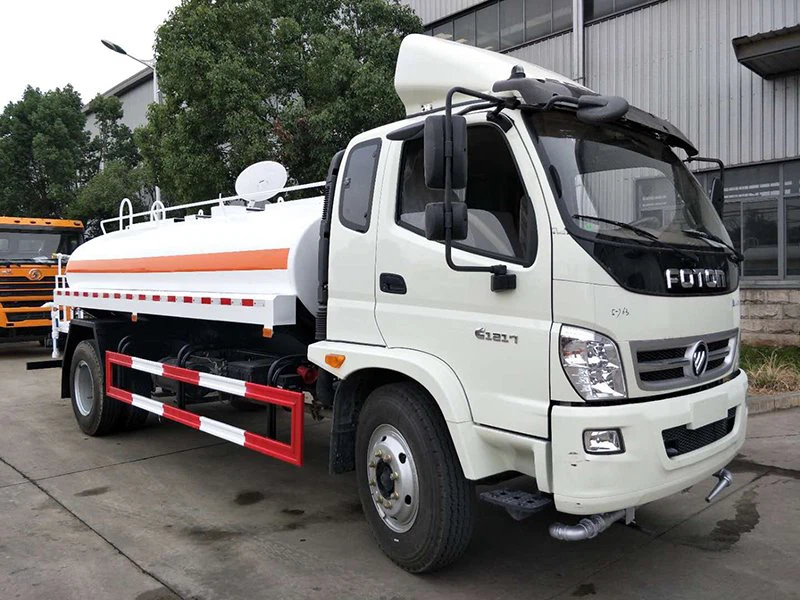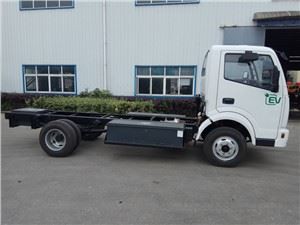Hydro Vac for Sale: The Ultimate Guide to Choosing the Right Hydro Vacuum Excavator

Hydro vacuum excavators, or hydro vacs, are essential tools for efficient excavation and utility work. As good as any other excavating machine, their unique design allows for safer, faster, and more precise digging while minimizing environmental impact. This article covers everything you need to know about hydro vacs, including where to find hydro vac for sale, key features to consider, practical examples, and more.

Table of Contents
- 1. What is a Hydro Vac?
- 2. How Hydro Vacs Work
- 3. Benefits of Using a Hydro Vac
- 4. Key Features to Consider When Buying a Hydro Vac
- 5. Top Hydro Vac Brands
- 6. Where to Find Hydro Vacs for Sale
- 7. Practical Tips for Using Hydro Vacs
- 8. FAQ
1. What is a Hydro Vac?
A hydro vac is a piece of heavy equipment that uses high-pressure water and vacuum technology to excavate soil and debris. Unlike traditional excavation methods, hydro vacuuming minimizes soil disturbance, making it ideal for sensitive areas and utility locations. They are commonly used in construction, landscaping, and utility maintenance.
Common Applications of Hydro Vacs
- Utility location and potholing
- Trenching for pipes and cables
- Excavating around underground utilities
- Cleaning and maintenance of catch basins and sewer systems
2. How Hydro Vacs Work
The operation of a hydro vac is straightforward yet efficient. Here’s a rundown of how it works:
- Water Supply: The hydro vac is equipped with a high-pressure water jetting system that sprays water into the ground to loosen the soil.
- Excavation: Once the soil is moist, the vacuum system quickly sucks up the slurry created by the water and soil mixture.
- Debris Collection: The collected slurry is stored in a tank within the hydro vac for disposal once the excavation is completed.
3. Benefits of Using a Hydro Vac
Investing in a hydro vac comes with a myriad of benefits:
Reduced Risk of Damage
Hydro vacs are particularly effective in preventing accidental damage to underground utilities compared to traditional excavation methods.
Environmentally Friendly
Since hydro vacs minimize soil disturbance and use water instead of heavy machinery, they have a lower environmental impact.
Time Efficiency
Hydro vacs significantly reduce excavation time, allowing projects to be completed faster.
Versatility
These machines can be used in a variety of conditions and terrains, adapting easily to different excavation needs.
4. Key Features to Consider When Buying a Hydro Vac
When searching for a hydro vac for sale, consider the following features:
Tank Capacity
The size of the tank will determine how much debris you can collect before needing to unload. Choose an appropriate size based on your expected workload.
Water Pressure
Assess the water pressure capabilities, as higher pressure allows for better excavation effectiveness, especially in tougher soil conditions.
Vacuum Power
Consider the vacuum’s horsepower and suction capability, which directly influence the efficiency of soil and debris removal.
Mobility
Look for features such as a trailer or truck-mounted options for easier transportation. Weigh the machine’s weight and size against your operational needs.
5. Top Hydro Vac Brands

| Brand | Features | Price Range |
|---|---|---|
| VAC-ALL | High efficiency, low noise | $$$ |
| Super Products | Versatile tank designs | $$$ |
| Ditch Witch | Long-lasting, durable | $$$$ |
| Vactor | Advanced technology integration | $$$$ |
6. Where to Find Hydro Vacs for Sale
There are multiple avenues for finding hydro vacs for sale:
Online Marketplaces
Websites like eBay, Amazon, and specialized industrial equipment sites offer a variety of options.

Manufacturer Websites
Visit manufacturer websites directly to see if they have listings for new and used equipment.
Local Equipment Dealers
Check with local heavy equipment dealers who may have hydro vacs available for purchase or rental.
Auctions
Participating in equipment auctions can sometimes yield lucrative deals on hydro vacs.
Industry Trade Shows
Attend industry events where manufacturers showcase their equipment and offer special deals.
7. Practical Tips for Using Hydro Vacs
To ensure you effectively use a hydro vac, consider the following tips:
Pre-Operation Checks
Always perform a thorough inspection of the hydro vac before use, including checking water levels, vacuum functions, and safety equipment.
Water Management
Optimize water usage by adjusting pressure according to soil conditions. Too much pressure can cause unnecessary soil dispersion.
Safe Operation Practices
Ensure that all operators are trained on the machine’s functions and safety protocols to prevent accidents.
Debris Disposal
Follow your local regulations for transporting and disposing of the collected debris to minimize legal issues.
8. FAQ
What are the main advantages of using a hydro vac compared to traditional digging methods?
Hydro vacs offer reduced risks of damage to underground utilities, faster excavation times, less environmental disturbance, and greater precision.
Can I rent a hydro vac before buying?
Yes, many equipment rental companies offer hydro vacs for rent, allowing you to test their capabilities without committing to a purchase.
What types of materials can a hydro vac handle?
Hydro vacs are effective for excavating soil, gravel, mud, and even asphalt. However, they are not designed for heavy boulders or solid rock.
Are there specific maintenance requirements for hydro vacs?
Regular maintenance includes inspecting water and oil levels, checking hoses for leaks, and cleaning the vacuum and tank to prevent clogs.
How do I know the right size hydro vac for my needs?
The right size depends on your specific job requirements, including the scale of your projects and frequency of use. Assess your needs and compare tank capacities accordingly.
What should I include in my hydro vac training program?
Your training program should cover machine operation, safety protocols, emergency procedures, and local regulations for debris disposal.
